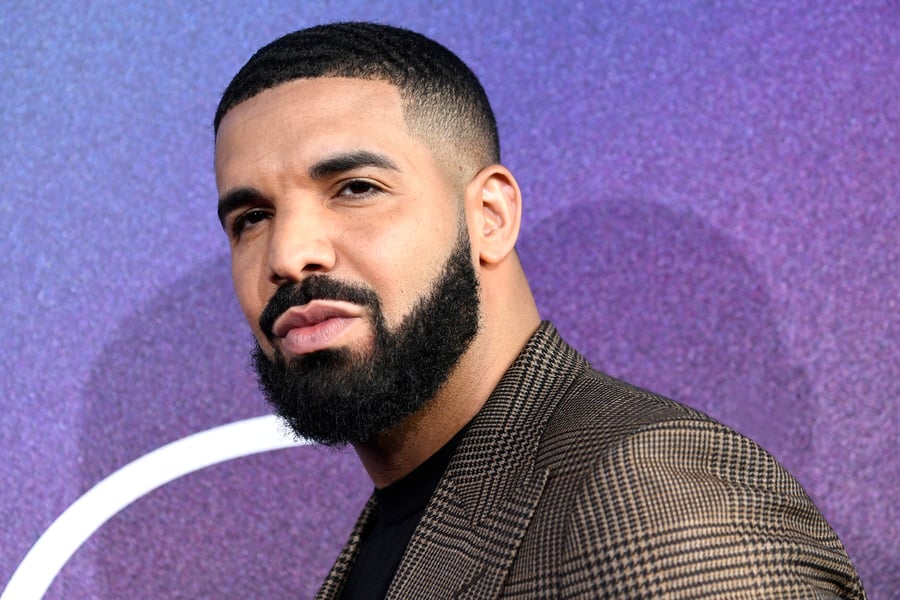Halfway through Drake’s “Laugh Now Cry Later” — the first single off the Toronto’s rapper’s upcoming album, Certified Lover Boy — Lil Durk raps, “Bring Drake to the hood, surround Drake around Dracs.” He pronounces “Dracs” like “Drakes,” but he means “dracos,” the firearm du jour featured in so many modern rap songs. The line functions as a clever play on words, but also works on a deeper and most likely unintentional level. Sonically, lyrically, and emotionally, “Laugh Now Cry Later” is the embodiment of what happens when you surround real Drake with a room full of past Drakes, like a tortured Canadian reboot of Being John Malkovich. As the first salvo off Drake’s sixth, seventh, or eighth studio album (depending on which projects you do or don’t consider playlists, demos, or mixtapes), it adheres to a familiar playbook. After months spent launching songs into the atmosphere to diminishing returns, the world’s biggest pop star is ready for a single with a capital “S” that heavily leans on the audience’s past associations with Drake as a cultural entity.
“Laugh Now Cry Later” is a spiritual successor to “God’s Plan” — his last first single — in more ways than one. The lead producers of both songs, Cardogotwings and Yung Exclusive (with Rogét Chahayed and GRy also along for the latest ride), deliver a redux of that amorphously celebratory sound that soundtracked graduations and food court sound systems for months back in 2018. Each hook is anchored by the type of vague, diaristic lines that say a lot of nothing, but feel good on repeat. This song’s “Sometimes we laugh and sometimes we cry, but I guess you know now, baby” is as emotionally fulfilling a phrase as “I hold back, sometimes I won’t, yuh/I feel good, sometimes I don’t” was in “God’s Plan.” The tendency for Drake to jumpstart a new album rollout with a goofy gym-playlist special — e.g. “Started From The Bottom,” “Hotline Bling” — continues unabated, but these days it’s stifled by the growing sense that we know the puzzle and how it’s ultimately solved.
Even the visuals for “Laugh Now Cry Later” feel like an unending déjà vu scenario. The video’s best moments, memes, and gags are telegraphed, following a cycle of familiarity. There’s the prerequisite celebrity-embarrassing-Drake scene — instead of Tyra Banks shoving a piece of cake in Drake’s face, we get to see Kevin Durant dunking on him, while Marshawn Lynch tackles him. 2018’s Instagram influencer of choice, Shiggy, is replaced with 2020’s equivalent Druski2funny. There’s a scene of Drake emotionally crying, which fulfills the obligation to make a statement about how the Toronto rapper knows his detractors think he’s soft. Since 2012’s bar-mitzvah-themed “HYFR,” every new Drake video has grown in its self-awareness. It was hilarious to know Drake was laughing at the same Drake jokes as us when Instagram and Twitter still felt new, but now most of those cackles have long died out. The sheer dominance of his run has a way of silencing most of the hate.
If one Drake line sums up his early 2010s run, it’s featured on 2013’s “5AM in Toronto.” Early in that song’s first and only verse, he raps, “Give these niggas the look, the verse, and even the hook/That’s why every song sound like Drake featuring Drake.” Here’s the thing — he wasn’t wrong. There’s an entire era of major-label rap that was propped up by Drake agreeing to feature on a song for whoever was the new flavor of the month. Seven years later, Drake now suffers from the same problem he once ridiculed his peers for, because so many new Drake songs feel like they’re haunted by better Drake songs.
Every artist gets to a point in their career cycle where the audience becomes too aware. We know what to expect, because we have hours upon hours of music to train our internal algorithm. Drake is at this point. He’s part of an echelon of hip-hop influence he always reached for — someone who can be credibly compared to Jay-Z, Nas, Kanye West, or Eminem — but no regime can last forever. “Laugh Now Cry Later” isn’t bad. In fact, it’s the type of addictive, lighthearted, and low-stakes summer song many people need right now. If it feels like we’ve heard this song before, it’s because we have — and that’s fine. We’ve spent years laughing with Drake. It was inevitable that we’d one day know all his punchlines.
From Rolling Stone US
Love Music?
Get your daily dose of everything happening in Australian/New Zealand music and globally.



































